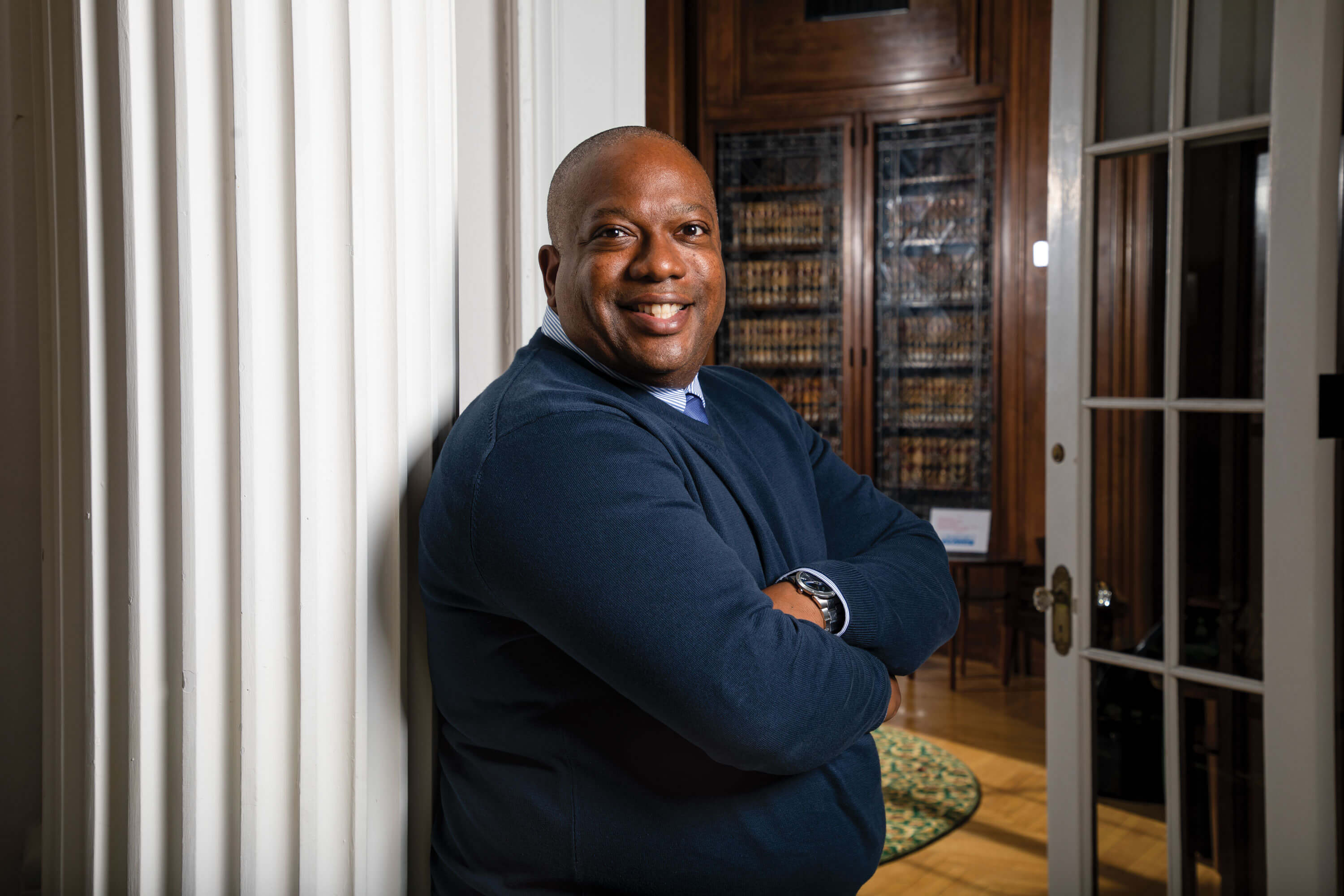
Flight Control
Claude Taylor is bringing a more personalized approach to first-generation student services at Monmouth.
As a first-generation graduate, Claude Taylor knows how bewildering the higher education landscape can seem to students who are the first in their families to attend college.
“My [undergraduate] experience was one of struggling to navigate university jargon, and struggling to understand the sequence of what I call the time horizon of higher ed,” says Taylor, a 1992 graduate of West Chester University who serves as Monmouth’s director for academic transition and inclusion. “I missed the opportunity to do things like study abroad and internships, and some of that was related to the fact that I just didn’t know who to ask or what to ask about.”
In his current role, Taylor leads First to Fly: First Generation at Monmouth, a campus-wide initiative created in 2017 to provide academic and social support to students who identify as first generation. Although the term “first-gen” wasn’t as commonplace 30 years ago—“First-gen advocates of my generation will often say we didn’t have that label,” says Taylor—today’s first-generation students face some of the same challenges he once did.
Two of the most common are limited “social capital” in campus contexts and limited resources, says Taylor. The first relates to first-generation students not having a network of family members who attended college and whose experiences they can draw upon. “Continuing education students tend to have that built in,” says Taylor. The second, resource strain, is often due to first-generation students being more likely than their continuing education counterparts to have to work to fund their education or support themselves and their families.
Part of what Taylor does through First to Fly is connect first-generation students with mentors and advisors who help the students tap into the personal enhancement opportunities available at Monmouth. “We try to build some of those social capital and financial resources for the students,” he says, and credits University faculty and staff members with being incredibly helpful in these efforts.
At the same time, Taylor is at the forefront of national discussions seeking to dispel the notion that first-generation students fit neatly into a “monolithic” category. “What we’ve come to learn in the four years that we’ve been building First to Fly … is that the identity of first-generation students is deeply complex,” says Taylor. “There are so many variations of a first-gen experience. Students of color have a different first-gen experience than rural students who might be majority culture students. Urban students have a different first-gen experience than suburban students…. Students who are LGBTQ have yet another layer in terms of their identity.”
So Taylor is leading efforts to develop programs, initiatives, and opportunities that better align with the intersecting identities of today’s first-generation students. It’s about “engaging students where they are,” says Taylor, to create a more “student-centered approach to first-gen advocacy.”
One of the programs already underway is the First to Fly club, which is a student organization that helps first-generation students connect with their peers. There are also efforts to establish a Monmouth chapter of Alpha Alpha Alpha, the national honor society for first-generation students; a military affiliated first-generation student network; and a fellowship program that would provide professional development and leadership training for first-generation students.
“We really want to make sure that we’re seeking to help students not just survive their education here at Monmouth, but to thrive and develop into their full personhood,” says Taylor. “How we get them there is by working with and connecting them with their own wishes and desires and aspirations.”